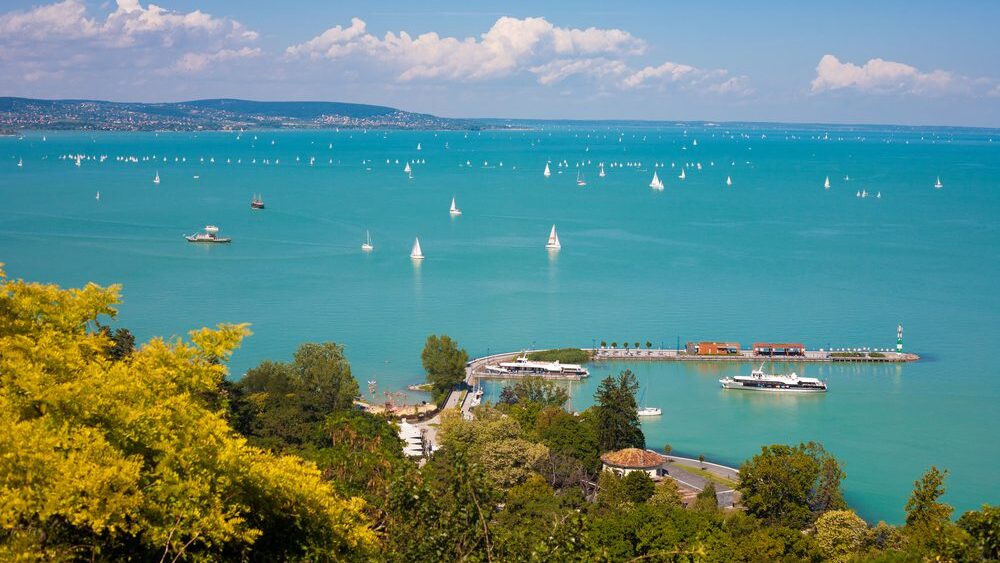
Hundreds of Jewish refugees who have been forced to flee their homes as a result of Hamas’ attack on Israel last month have found sanctuary at an unused state resort camp that sits along the shores of Hungary’s picturesque Lake Balaton.
The resort camp first began hosting Jewish families who fled Ukraine in 2014 following the military conflagration that ensued in the Donbas region after pro-Russian, separatists seized the cities of Donetsk and Luhansk. Now, it is providing refuge to some 250 people, including 100 children, most of whom fled from Israel in the weeks following the October 7th attack.
In addition to the resort camp’s central building where residents are served three kosher meals daily and have the opportunity to engage in various social activities, including sports, games, dancing, and the study of Jewish religious texts, the camp has separate units which serve as housing facilities for the residents.
“We make sure people are eating well, make sure they’re healthy, psychologically healthy, mentally healthy,” Mendel Moscowitz, who serves as the camp’s rabbi, said. He underscored that all Jews, be they Orthodox, secular, or non-observing, are welcome at the facility. The fact that all the residents of the camp share the same religion and the same refugee status “brings everyone together,” the rabbi emphasized.
“They find their place here because we all share that we’re Jewish and we all share the refugee status that also brings everybody together,” Moscowitz, who himself fled his home city of Kharkiv in eastern Ukraine following the start of the Russo-Ukrainian war in 2022, told AP.
According to Moscowitz, the fact that he is a war refugee himself has allowed him to better serve those who have also found themselves at the resort camp.
“I know their needs, I feel their needs. I know what it’s like to run away from war,” he continued, adding: “Unfortunately, we’re having to experience a second war for our families. And thank God, thank God that there is a place where we could go to.”
Over 3,000 people have called the camp home at some point since the war in Ukraine began nearly 21 months ago, according to Slomó Köves, who serves as the chief rabbi for the Association of Hungarian Jewish Communities.
He told AP that he is “proud” of Hungary for stepping up and offering displaced Jews a safe haven, but lamented the fact so many have had to flee their homes in the first place.
“To slaughter you because you are Jewish, regardless of who you are, what you are, what you believe in, is something that has never happened in the history of the state of Israel,” he said.
Several families who sought refuge at the lakeside camp in the past month have already gone back to Israel, but many intend on staying put for the next few months, optimistic that the war will conclude soon, the rabbi said.
It’s worth noting that, in the wake of the Israel-Hamas war, Hungary has opened its doors to Israel in other ways as well. Amid a sharp uptick of antisemitic incidents across Europe, Hungary is allowing Israel’s men’s football team to play two of its European Championship qualifying “home” games at the Pancho Arena in Felcsút, Hungary—the home village of Hungarian Prime Minister Viktor Orbán.
Orbán, a massive football fan himself, has long insisted Hungary is the safest country in Europe for Jews.
